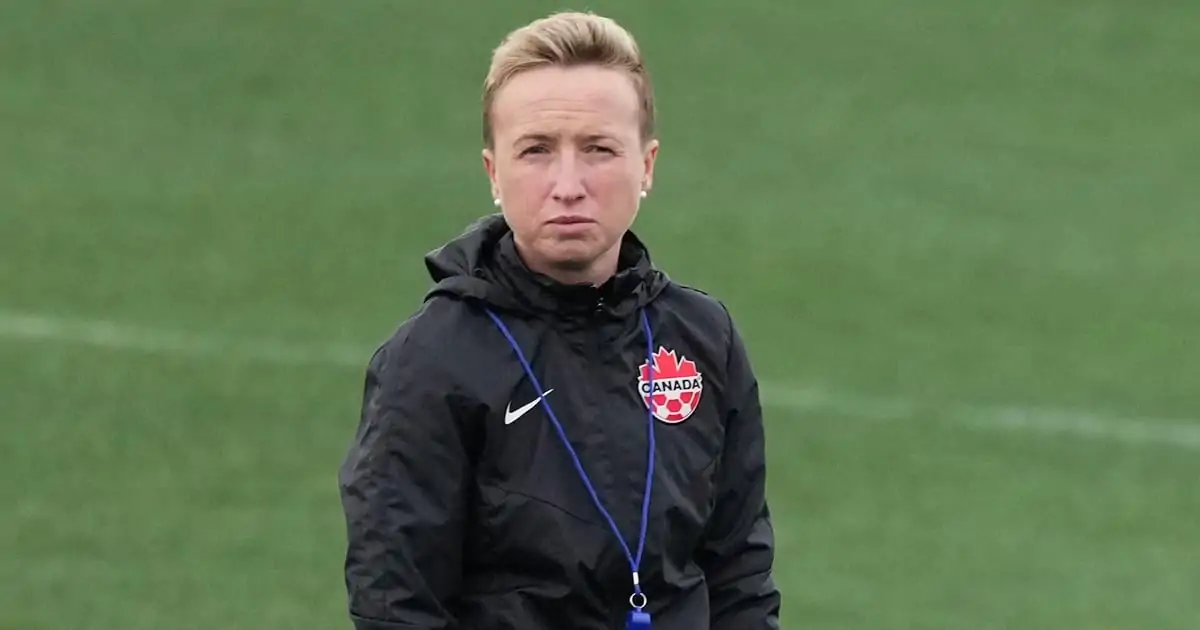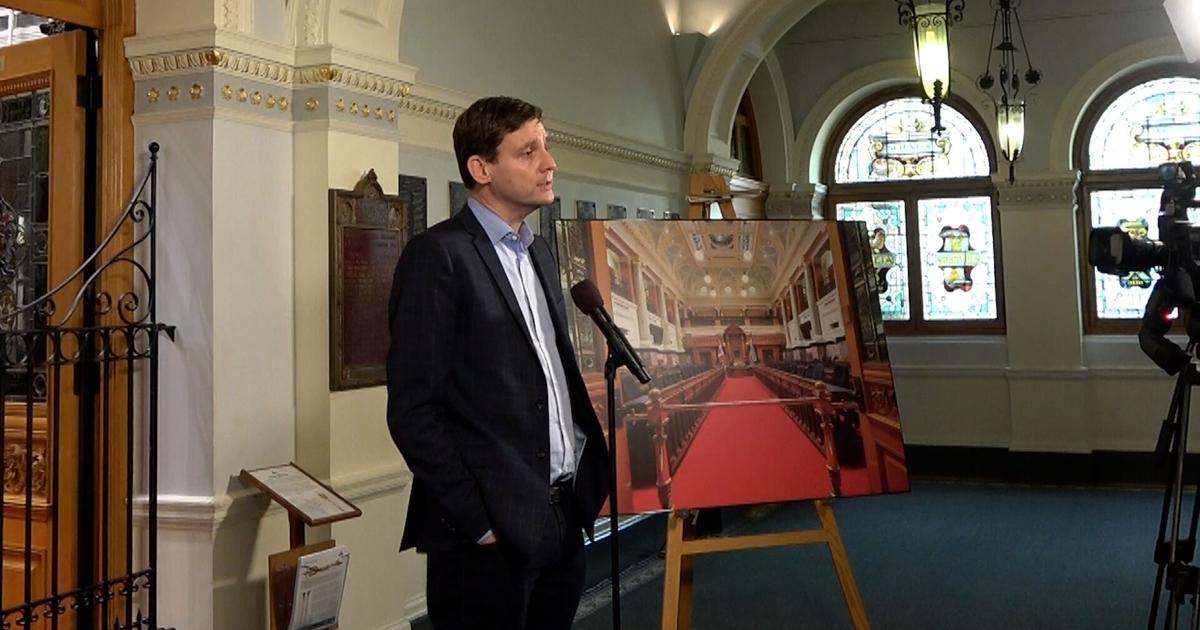News
Life slowly resumes in Ottawa under heavy police presence – Al Jazeera English
Ottawa, Canada – After weeks of blaring truck horns and crowds of protesters denouncing coronavirus measures and Prime Minister Justin Trudeau’s government, the streets in the heart of Canada’s capital have gone quiet.
Outside Parliament Hill on Tuesday, small groups of police officers walked past blue fencing erected to control traffic in and out of the largely empty streets. A few restaurants and cafes were open, while a handful of workers in fluorescent vests cleared snow.
Life is slowly returning to normal in downtown Ottawa, residents and workers say, after the area was occupied for three weeks by anti-government truckers and their supporters as part of the so-called “Freedom Convoy“.
“It felt like a really bad party that had gone wrong,” said Bill, who works a block from parliament and only gave Al Jazeera his first name, about the protests.
Tuesday was much quieter than it had been, he told Al Jazeera, smoking a cigarette outside his office building, but he wants to see the fences come down, the police officers leave, and people come back downtown, in other words, he said, for “a sense of normality” to return.
Gordon Belyea, who has to go through downtown to get to work, told Al Jazeera he thought the city would “bounce back” fairly quickly.
“A lot of folks I think sympathise to some degree with some of the concerns of the protesters,” he said. “But at the same time, I think most folks have had it with the streets being blocked off and for people being intimidated … It’s intimidating, especially if you don’t look like a lot of the folks that have been protesting.”
The effects of the weeks-long occupation continue to be felt, especially in the city’s downtown area, where police still maintain a large presence after dispersing demonstrators during the weekend. Police had set up about 100 checkpoints around a secured area to prevent protesters from returning and dozens of big rigs and other vehicles were towed away.
Organised by some far-right and white supremacist activists, the “Freedom Convoy” brought thousands of people to the Canadian capital starting late last month to denounce a coronavirus vaccine mandate for truckers at the US-Canada border.
Many stayed in the city’s downtown core, where they blocked roads, honked their horns incessantly and vowed to stay until all COVID-19 restrictions were lifted across Canada. Local residents denounced the convoy as an “occupation” – and a sense of fear spread over the city amid reports of harassment and threats.
As of 8am (13:00 GMT) on Monday, police said that 196 people had been arrested, including 110 who were charged with various offences such as mischief and assault, in relation to the convoy.
That included some key organisers, including Tamara Lich, who led an online fundraiser that raised millions of dollars for the protest. Canadian media reported that a judge on Tuesday denied bail to Lich, who was charged last week with counselling to commit mischief.
Another top organiser, Pat King, also was in court on Tuesday for a lengthy bail hearing. The hearing was adjourned without a decision and will resume later this week, Canadian media reported.
The Ottawa occupation and other similar blockades of key US-Canada border crossings have raised significant questions around the rise of far-right groups in Canada, the response of police, and the federal government’s use of emergency powers to regain control.
On Monday night, Canadian legislators in a 185-151 vote approved the use of the Emergencies Act, which Prime Minister Justin Trudeau invoked last week to give his government sweeping authority to dismantle the protests. The temporary measure will remain in place until mid-March.
“We will only do this for as long as we believe it is required,” Canada’s Minister of Emergency Preparedness Bill Blair said after the parliamentary vote. “And so we are very hopeful that our law enforcement officials and other officials … will be able to restore peace and the rule of law right across the country and end the state of emergency as soon as possible.”
Civil liberties groups and opposition politicians have criticised Canada for invoking the emergency order, with the Canadian Civil Liberties Association (CCLA) saying on Monday evening that there was “no legal justification” for its use. “The broad powers the government has granted to police curtail” rights enshrined under the Canadian Charter of Rights and Freedoms, the group tweeted.
Let’s be clear: there is no legal justification for using the emergencies act.
The broad powers the government has granted to police curtail Charter rights across the country.
This risk of abuse is high.
The emergency declaration should be immediately revoked.
— Canadian Civil Liberties Association (@cancivlib) February 22, 2022
But back in downtown Ottawa on Tuesday, residents welcomed the sense of relative calm.
“It’s so nice with everything being gone. I’m so happy,” said Ally Whalen, who works at a café just blocks from Parliament Hill and lives in the city’s Byward Market area, where she said she could hear the truck horns at all hours of the night.
Her workplace decided to close on weekends and to move to reduced hours on weekdays during the protests, and they also eventually decided to refuse service to anyone who would not wear a mask inside.
“It just got too chaotic … We just couldn’t deal with the harassment any more. It was too hard on the people working,” the 23-year-old told Al Jazeera on her way into work on Tuesday for her first shift since the protesters were cleared out of the city centre.
“I’m really excited. I can’t wait to see everyone. It’s definitely going to be such a better vibe and mood.”
 Police have blocked off a secured area of downtown Ottawa to anyone who does not live, work or have a valid reason to be there [Jillian Kestler-D’Amours/Al Jazeera]
Police have blocked off a secured area of downtown Ottawa to anyone who does not live, work or have a valid reason to be there [Jillian Kestler-D’Amours/Al Jazeera]News
Toronto Sceptres open camp ahead of second PWHL season |

The Toronto Sceptres have opened training camp for the upcoming PWHL season, with a new logo, new colours, new jerseys and a new primary venue in Coca-Cola Coliseum. The team has a lot to look ahead to after a busy off-season and successful inaugural campaign. (Nov. 12, 2024)
News
Major shakeup at Canada Soccer in wake of drone-spying scandal |

After a lengthy independent report on the Summer Olympic drone-spying scandal, Canada Soccer says women’s head coach Bev Priestman, assistant coach Jasmine Mander and analyst Joey Lombardi will not be back with the organization. It found the “practice of conducting surreptitious surveillance of opponents” predated this summer’s Paris Olympics. Former coach John Herdman has yet to give evidence. (Nov. 12, 2024)
News
Eby pays tribute to former B.C. premier John Horgan |

B.C. Premier David Eby says John Horgan was an inspirational leader who guided the province’s New Democrats out of the political wilderness after 16 years in Opposition. Eby says his predecessor as premier, who has died after a third bout with cancer, was known for his compassion for people from all walks of life but also his sharp tongue. (Nov. 12, 2024)
-

 News23 hours ago
News23 hours agoFrom transmission to symptoms, what to know about avian flu after B.C. case
-

 News23 hours ago
News23 hours agoBitcoin has topped $87,000 for a new record high. What to know about crypto’s post-election rally
-

 News23 hours ago
News23 hours agoWisconsin Supreme Court grapples with whether state’s 175-year-old abortion ban is valid
-

 News13 hours ago
News13 hours agoCanadanewsmedia news November 12, 2024: Union serves strike notice to Canada Post
-

 News13 hours ago
News13 hours agoAs Toronto enters its Taylor Swift era, experts say crowd safety depends on planning
-

 News12 hours ago
News12 hours agoFormer CFL commissioner Mark Cohon joins Northern Super League as board chair
-

 News13 hours ago
News13 hours agoFederal government moves to end port strikes, orders binding arbitration
-

 News12 hours ago
News12 hours agoWaymo’s robotaxis now open to anyone who wants a driverless ride in Los Angeles






















